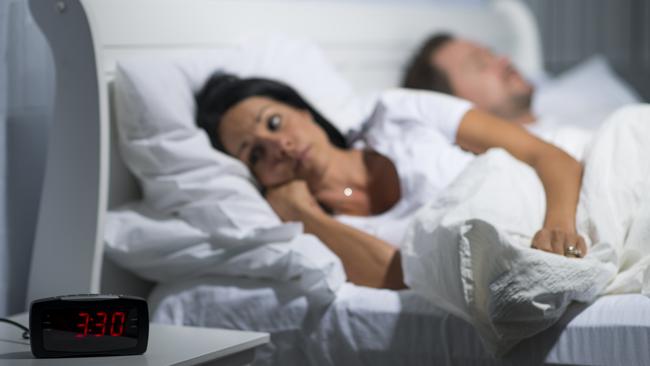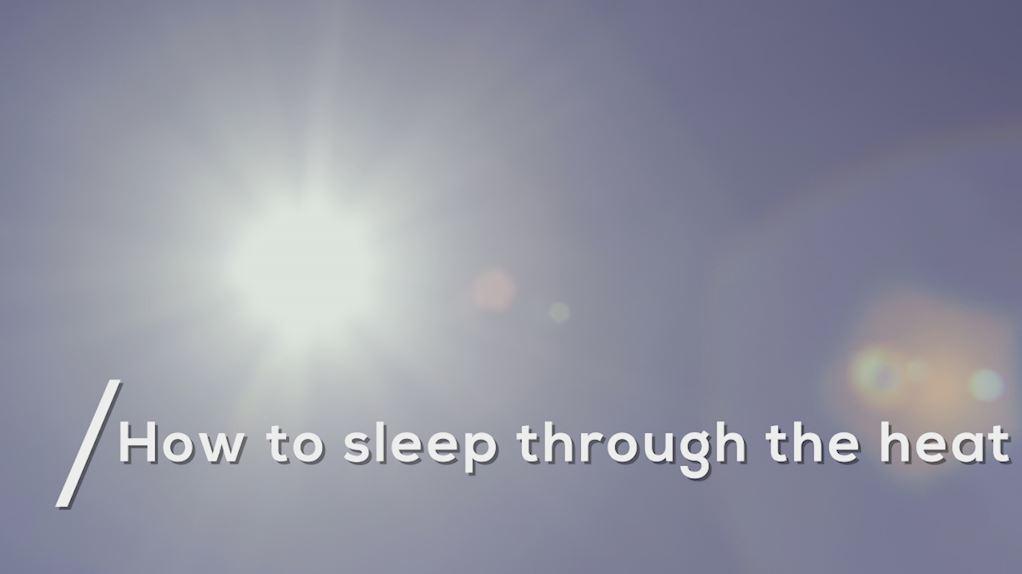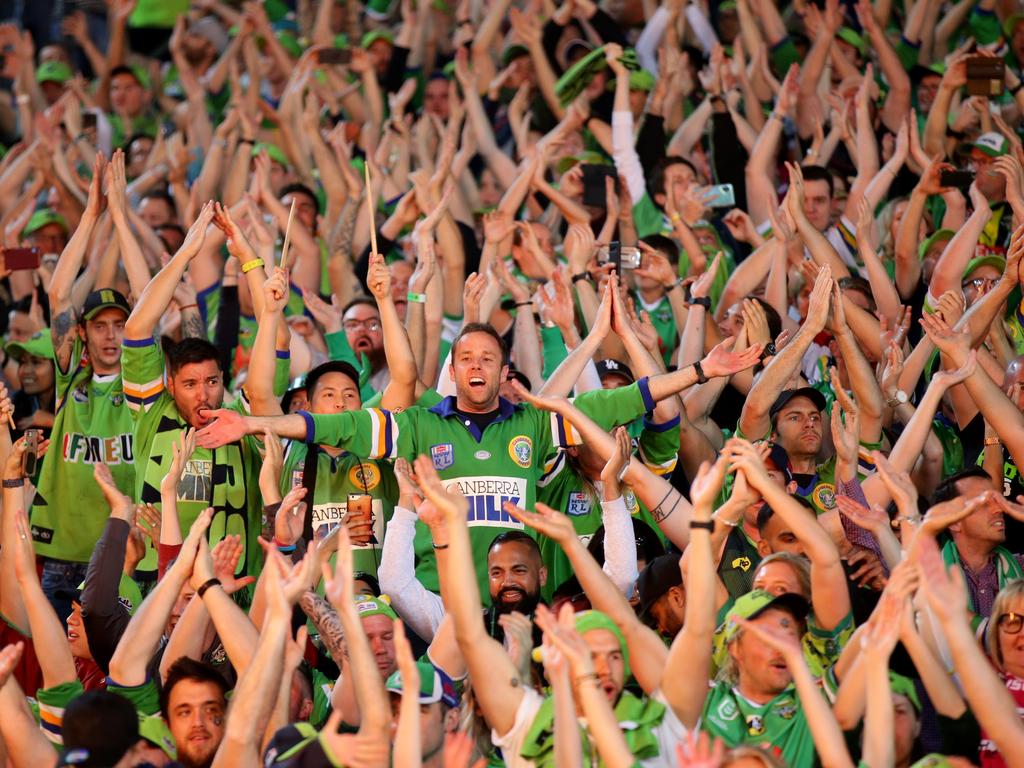Wake up to the wonders of a broken night’s sleep
Don’t lie there tossing and turning as insomnia eats into your eight hours. The new way to rest is to get your shut-eye in shifts.

For years, when 31-year-old Charlie Callaghan woke up in the middle of the night she would toss and turn for hours, not able to get back to sleep. A sufferer of a chronic illness, her anxiety compounded and she worried that her restlessness would have a knock-on effect on her productivity the next day, week and even maybe month. That all changed when she saw an article on segmented sleep.
“Finding out about ‘first sleep’ and ‘second sleep’ was a bit of a game changer,” says Callaghan, a writer who lives in Gateshead. “Getting back to sleep becomes less of a big deal and now I let my body do what it wants to.”
These days when she naturally wakes up she either listens to audiobooks in bed or plays video games and writes until she gets tired.
“My partner is the same as me, we listen to podcasts on the speaker and our cats think it’s party time,” she says, although it turns out that being sleep-deprived is not a great time for decision-making. Callaghan has made some questionable early hours online purchases, mainly slogan T-shirts and even a wood-whittler.
For her, the pandemic has illuminated an alternative model of working – one that doesn’t favour the early birds and allows people to be productive at different times of day. Embracing the technique has calmed her anxiety about sleep and her illness and resulted in less pain.
Eight-a-night has been the new five-a-day of recent years. Larks have had a sense of smug satisfaction about them. According to a study from the University of Southampton, the number of insomnia-sufferers rose from one in six to one in four during the pandemic. In fact, the word “insomnia” was googled 60 per cent more often in the first five months of 2020 compared with previous years. When did sleep get so stressful?

Good news for night owls: now more people are turning to a segmented sleeping schedule, which typically involves two four-hour stages of sleep, with a break of a few hours in the middle. It’s not as weird as it sounds – the Spanish have been having siestas for years, after all. Nowadays, instead of frantically counting sheep while the minutes creep on, people are learning to embrace the insomnia, getting up to work, cook or water the plants. The fact that now you can start work in your pyjamas also helps.
Before the Industrial Revolution, segmented sleep was accepted as normal. Insomniac cavemen would stay awake on watch for danger and from the Middle Ages to medieval times people would sleep in two shifts. In his book, At Day’s Close: A History of Nightttime, the historian Roger Ekirch found that people would wake in the middle of the night to work, pray, procreate, socialise and eat. First and second sleeps are mentioned in Chaucer’s The Canterbury Tales and Samuel Pepys was a night owl with an irregular sleep pattern and often woke up with the 4am guns (an inconvenient alarm clock) before napping. Moral of the story: if you can’t sleep, start a diary.

Segmented sleep is not always all it’s cracked up to be. Faye Davies, 43, from London has been involuntarily practising this way of living two decades. She goes to bed at 10 o’clock before waking at 2am for three hours and dropping back to sleep at 5am.
“It’s not a routine that I would like to have,” she admits. “I’ve tried all sorts: I’ve been to the doctor, I’ve been prescribed sleeping tablets, I’ve tried herbal remedies.” Fuelling her anxiety, Matthew Walker’s eye-opening 2017 book Why We Sleep outlined the perils of insufficient shut-eye: higher risk of dementia and cancer; increased likelihood of being overweight, less chance of living until your mid-sixties, the list goes on. It’s enough to give you nightmares.
“I’ve come to terms with it because I’ve been more or less forced to,” says Davies, who has had cancer in the past and worries that her odd sleeping pattern contributed. “The truth is I function really well on this schedule. If I sleep too long now I end up worse.” Her nocturnal activities have extended to sending work emails to colleagues and clients at her architecture firm, where she is a managing director, who are often alarmed at the time her emails are sent.
“I have to be really careful,” she says. “I have a big client and people there have noticed my strange patterns. I’m sure they think I’m some sort of robot.”
Like Callaghan, Davies has been known to make some strange night-time life choices. “’I’ve booked quite strange holidays,” she admits. “Next month I’m going to Uzbekistan – that was something I booked at night.”
There are other benefits of breaking up your eight hours, Callaghan tells me. “Quite often it’s the only time when no one can get in contact with me. It’s quiet, I’m not constantly looking at my phone. It’s a very private and personal time.”
The experts aren’t sold on segmented sleeping as a solution for everybody, however.
“All the evidence points towards the fact that we’re designed to sleep at night,” says Dr Guy Meadows of the London clinic Sleep School, who tells me that apart from what’s written in the history books, there is no scientific evidence that this model produces the same results as eight hours of continuous sleep. “A good-quality sleep is about achieving complete cycles of deep and rapid-eye movement. It would suggest that we’re better off getting that in one chunk.
“Insomnia is related to the intimate relationship between sleep and anxiety,” he says. “It’s perfectly normal to wake up in the night but if you start to get up and engage in daytime activities you will train your body clock to wake up at that time every night.”
Thanks to the pandemic, sleeping in until five minutes before your first Zoom call is a real possibility.
“One of the very few silver linings of Covid was that people felt more able to align themselves with their natural sleep timing,” says Meadows.
So will we all be adopting this new way of living? I wouldn’t count sheep on it.
The Sunday Times







To join the conversation, please log in. Don't have an account? Register
Join the conversation, you are commenting as Logout